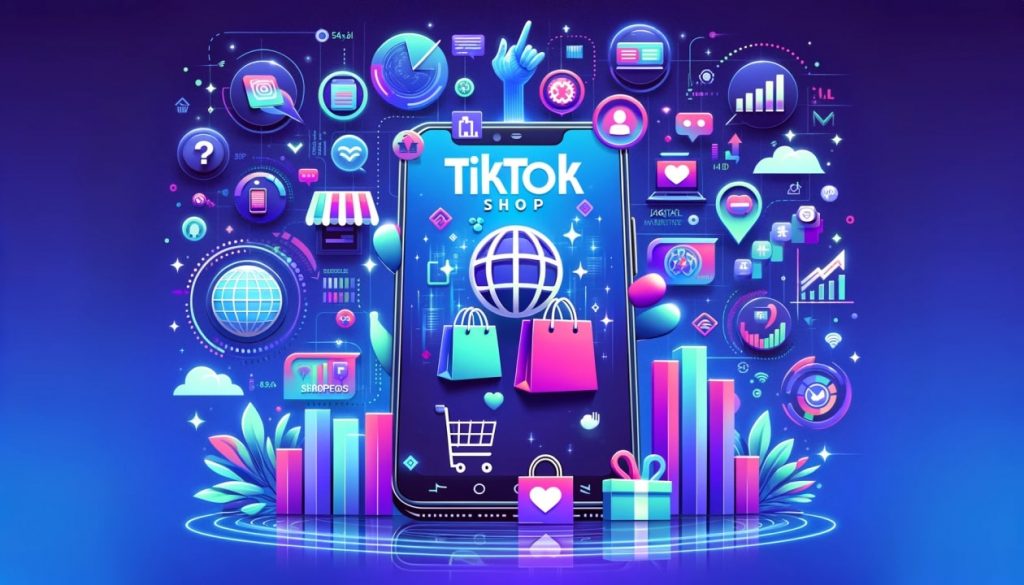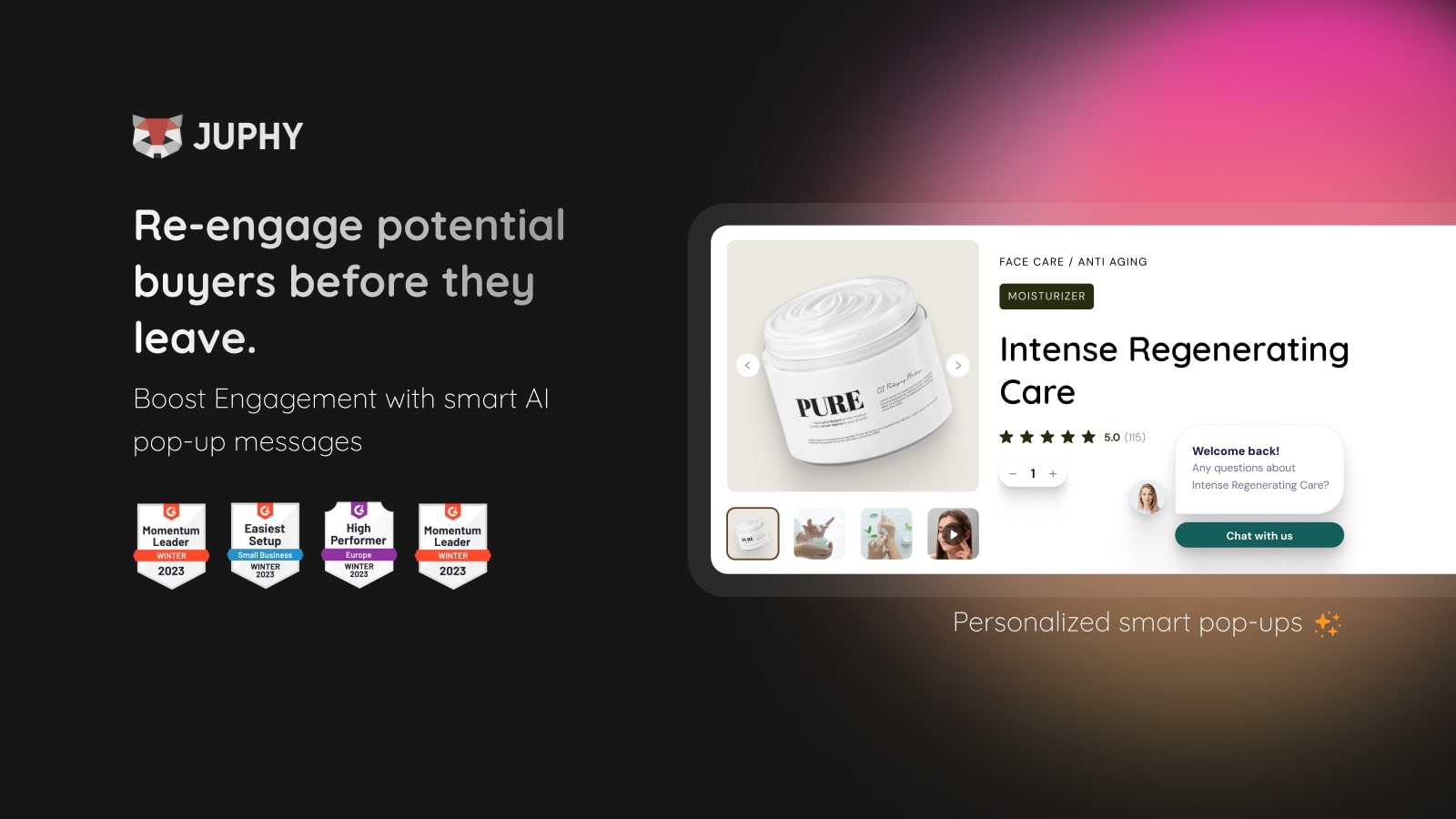Juphy’s Weekly E-Commerce News Express – 30 December 2024-03 January 2025
Ceyda Duz
Let’s kick off the year with a strong start by diving into the latest e-commerce and AI developments. This week, we’ll dive into TikTok’s strategic e-commerce growth, key trends to watch in 2025, and exciting updates from Alibaba, DHL eCommerce, CTT Expresso, and Google Ads on new products and partnerships.

TikTok’s E-Commerce Growth: A Strategic Success
When TikTok first introduced shopping features, many users were hesitant. The app, known for short-form entertainment and viral videos, seemed an unlikely space for online shopping. Critics questioned whether users would welcome the idea of purchasing products while browsing their feeds. However, TikTok responded by steadily expanding its e-commerce capabilities, offering users a seamless shopping experience that blended entertainment with convenience.
A Comprehensive E-Commerce Platform
Unlike other platforms that specialize in specific aspects of e-commerce, such as live selling or affiliate marketing, TikTok has developed a holistic approach. It integrates a variety of social commerce features into one platform, including influencer marketing, live shopping events, and in-app purchases. This comprehensive offering allows merchants and creators to engage with customers at every stage of the buying process—whether through sponsored posts, live streams, or direct product links in videos. By combining entertainment with shopping, TikTok has created a unique ecosystem that sets it apart from its competitors.

Strong Growth Despite Challenges
TikTok Shop’s growth has been impressive. The platform has generated over $1 billion in monthly sales and experienced a major increase in Black Friday sales. While early adoption faced some technical hurdles and growing pains, TikTok has gradually refined its marketplace, ensuring a more consistent shopping experience for both buyers and sellers. The platform has shown particular success among younger shoppers, who are increasingly favoring social commerce over traditional online retail. As TikTok continues to evolve, its ability to make products go viral and reach new audiences remains one of its key strengths.
Competing with Larger Retailers

Despite TikTok Shop’s still relatively small share of the U.S. e-commerce market, its growth is undeniable. The platform’s influence on consumer behavior is expanding, and it has become a serious contender in the social commerce space. Major retailers, including Amazon, are adapting to TikTok’s success by incorporating similar features into their own platforms. Amazon, for example, has added a TikTok-like feed and is investing in live shopping and influencer partnerships to appeal to the younger, social-first consumer audience that TikTok has captured.
The Future of TikTok E-Commerce
TikTok’s e-commerce future looks promising, though challenges remain. Political hurdles, including potential bans in some countries, could disrupt its growth. However, TikTok’s rapid innovation and ability to adapt to market trends suggest that it will continue to shape the future of online shopping. As TikTok refines its approach and builds stronger partnerships with creators and brands, its influence on the e-commerce landscape is likely to grow, offering new opportunities for businesses to reach customers in fresh and engaging ways.
E-Commerce Trends to Watch in 2025: The Role of AI, Sustainability, and Personalization
As we move into 2025, the e-commerce landscape is set to experience significant transformations driven by new technologies and changing consumer expectations. One of the most notable shifts will be the growing role of artificial intelligence (AI) in shaping the future of online shopping. With this change, businesses must embrace AI, sustainability, and personalization to remain competitive in this rapidly evolving market.
Voice Search: A Game-Changer for E-Commerce
In 2025, it’s expected that half of all online searches will be voice-activated, signaling a major shift in how consumers interact with brands. Voice search is poised to transform the customer journey, and businesses will need to adopt conversational AI to stay relevant. This technology will not only improve the search experience but also enhance customer support and streamline purchasing processes. Brands that integrate voice-activated AI into their strategies will be better equipped to meet customer expectations and increase conversion rates.

Hyper-Personalization Takes Center Stage
AI and real-time data will enable hyper-personalized shopping experiences that cater to individual preferences. Customers will expect tailored recommendations, content, and offers based on their browsing behavior and purchase history. By leveraging advanced AI-driven tools, businesses can deliver seamless and relevant experiences that foster customer loyalty and increase sales.
The Rise of Social Commerce

Social media platforms like TikTok and Instagram are becoming integral parts of the shopping experience. This year, it’s projected that over 10% of e-commerce sales will come from social commerce, up from 7%. This growth will be fueled by enhanced shopping features, including shoppable posts and live selling events. Brands that capitalize on these social platforms will have a unique opportunity to engage with their audiences and drive conversions directly within the apps.
The Push for Sustainability
As consumers become increasingly conscious of their environmental impact, sustainability will play a central role in purchasing decisions. Around 70% of consumers now prioritize sustainability, and businesses that align with these values will build stronger trust and loyalty. Whether it’s through eco-friendly products, sustainable packaging, or carbon-neutral shipping options, brands that focus on sustainability will be better positioned to meet consumer demand and stand out in a crowded market.
AR/VR Integration Enhances the Shopping Experience
Augmented reality (AR) and virtual reality (VR) will revolutionize the way consumers shop online. By 2025, the market for AR/VR experiences is expected to reach $50 billion, offering brands an immersive way to showcase products and allow customers to try before they buy. These technologies will not only enhance the shopping experience but also provide a competitive edge for brands that leverage them effectively.

The Emergence of Specialized Marketplaces
As e-commerce grows, so does the demand for specialized marketplaces that cater to specific consumer needs. Niche platforms for luxury items, discounted goods, or other specialized products will continue to emerge, allowing businesses to connect with targeted audiences. These marketplaces will provide consumers with a curated shopping experience while enabling brands to reach more focused, engaged shoppers.
AI and Automation: Driving Efficiency and Growth

AI will play a critical role in automating routine tasks and optimizing e-commerce operations. From personalized product recommendations to automated customer support, AI will enable businesses to streamline processes, save time, and focus on growth. Automation through AI-powered agents will help brands scale efficiently while improving the overall customer experience.
As we look to 2025, businesses that strategically incorporate AI, sustainability, and personalization will be well-positioned to lead the next wave of e-commerce innovation. The trends outlined above are just the beginning, and companies that stay ahead of these shifts will be the ones driving the future of online retail.
Alibaba Expands Presence in South Korea
Alibaba has teamed up with E-Mart, a subsidiary of Shinsegae Group, to launch a joint venture in South Korea. The agreement merges resources from AliExpress Korea and Gmarket, which will continue to operate separately. Shinsegae Group views the partnership as a way to enhance Gmarket’s offerings and improve the shopping experience for its customers.

DHL eCommerce and CTT Expresso Collaborate in Iberia

DHL eCommerce and CTT Expresso have partnered to enhance parcel delivery across Spain and Portugal, the fourth-largest e-commerce market in Europe. As part of the agreement, CTT Expresso will take over DHL’s eCommerce operations in Portugal, serving as its parcel distributor. In Spain, DHL will prioritize B2B logistics, while CTT Expresso’s Spanish division will handle B2C deliveries. This partnership is set to optimize delivery networks throughout the Iberian Peninsula.
Google Ads Introduces Brand Report Dashboard
Google Ads has introduced Brand Report, a feature aimed at simplifying campaign performance tracking. This dashboard centralizes essential metrics like reach and frequency, offering advertisers a more efficient way to monitor campaigns. With demographic filters for attributes like age and gender, Brand Report provides detailed insights, accessible directly under “Insights and reports” in the Google Ads platform.

Engage Your Customers Seamlessly with Juphy AI
Engaging customers in an online store can be a challenge, especially when there’s no opportunity for direct interaction. It often feels like a one-way street, where customers can only reach out when they need help. But with the rise of AI in 2025, you can easily hire AI Agents like Juphy AI that are transforming how online stores engage with their customers.
As a ‘Built for Shopify’ badged AI Agent, Juphy acts as your virtual sales representative, enhancing both sales and support. With proactive sales pop-ups, it greets customers like an in-store assistant, offers immediate assistance, reduces cart abandonment, recognizes returning visitors, and guides customers to products they love. Juphy AI empowers your online store to create a personalized shopping experience, making it feel just like a physical store.
Ready to elevate your online store? Try Juphy AI today and see the difference: apps.shopify.com/juphy

Key Takeaways
TikTok’s E-Commerce Growth: TikTok’s evolution into a comprehensive e-commerce platform has reshaped online shopping. With $1 billion in monthly sales and growing, it offers a unique blend of social commerce features such as live shopping and influencer marketing, setting it apart from competitors.
E-Commerce Trends to Watch in 2025: In 2025, AI, voice search, hyper-personalization, and sustainability will define e-commerce. Businesses must adapt to these shifts by integrating advanced AI technologies and embracing consumer values to stay ahead in the competitive market.
Alibaba Expands Presence in South Korea: Alibaba’s partnership with E-Mart in South Korea strengthens its e-commerce reach, combining AliExpress Korea and Gmarket while enhancing customer experiences. This expansion signals Alibaba’s growing influence in the global market.
DHL eCommerce & CTT Expresso Collaboration: DHL and CTT Expresso have partnered to improve parcel delivery across Spain and Portugal, optimizing B2B and B2C logistics to cater to the needs of the rapidly growing Iberian e-commerce market.
Google Ads Introduces Brand Report Dashboard: The new Brand Report feature in Google Ads offers enhanced campaign tracking, with metrics like reach and frequency, enabling advertisers to better understand their audience and improve targeting strategies.

